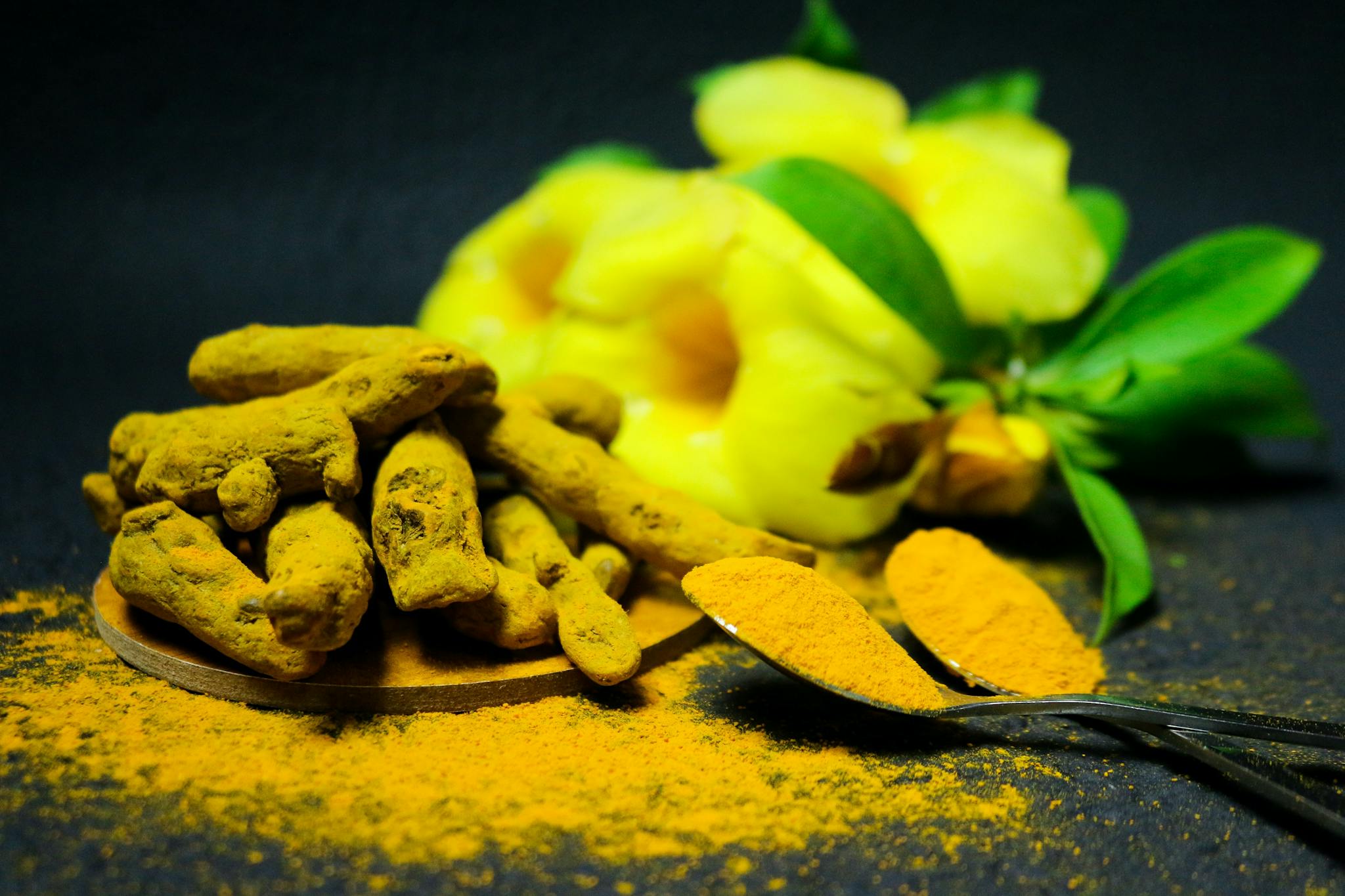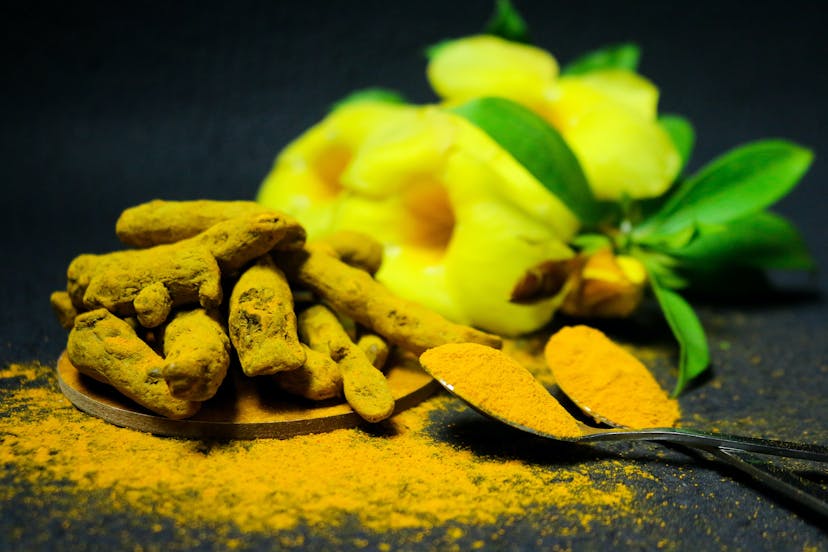In our exploration of the world of spices, one stands out with its golden hue and its unique earthy flavor that offers warmth and peppery zest to a myriad of dishes: Turmeric. Belonging to the ginger family, turmeric is not just a common fixture in spice cabinets, but also holds a prestigious position in traditional medicine due to its remarkable health benefits.
Origins and Cultural Significance
Native to the Indian subcontinent and Southeast Asia, turmeric, or Curcuma longa, has been utilized for over 4000 years. Used initially as a dye, this golden spice soon found its way into culinary practices and traditional medicinal systems like Ayurveda and Traditional Chinese Medicine.
The spice holds cultural significance in these regions, playing a role in various religious rituals and ceremonies. For instance, in Hinduism, turmeric is used in weddings and Pujas, symbolizing purity and light.
Cultivation and Processing
Growing turmeric is a long process. The plants are propagated from rhizomes (underground stems) and require a warm, humid climate and fertile, well-drained soil. They're harvested approximately eight to ten months after planting, usually between January and March, when the leaves and stem start to dry out and turn brown.
The rhizomes are then boiled and dried in hot ovens before they're ground into a deep-orange-yellow powder, i.e., the turmeric we commonly find on store shelves. The process gives turmeric its characteristic color and helps preserve the spice's ingredients.
The Culinary Golden Touch
Turmeric is a staple ingredient in Indian cuisine and a crucial component of curry powder, lending it its signature color and a portion of its distinct flavor. It's also used in numerous dishes worldwide, from Moroccan spice mixes to Thai curry pastes, and even as a colorant in American mustard.
Despite its strong color, the taste of turmeric is subtle yet complex. It has a bitter, slightly sweet flavor with hints of orange and ginger. It pairs well with a variety of flavors and spices, making it a versatile addition to both savory and sweet dishes.
The Power of Curcumin
Turmeric's most active compound is curcumin, a natural polyphenol that gives the spice its bright yellow color. Curcumin has been extensively studied for its powerful antioxidant and anti-inflammatory properties. It has shown potential benefits in managing a variety of health conditions like arthritis, heart diseases, and digestive issues.
Turmeric in Traditional Medicine
In traditional medicinal systems, turmeric has been used to treat a wide array of ailments. In Ayurveda, it's considered a cleansing herb for the whole body and helps increase the luster of the skin. It's also used to support the immune system, maintain healthy respiratory and digestive systems, and enhance the body's overall energy.
Chinese medicine also uses turmeric for conditions associated with abdominal pain, and it's often used to help improve blood circulation and relieve menstrual discomfort.
Turmeric in Modern Medicine
Modern medicine has also begun to recognize turmeric's medicinal properties. A growing body of research suggests that curcumin could have several therapeutic properties, including anti-inflammatory, antioxidant, anticancer, antiviral, and antibacterial activities.
It's crucial to note that while the research is promising, more studies are needed to firmly establish the extent of turmeric's health benefits and its optimal dosage. Moreover, because curcumin is not easily absorbed by the body, it's often recommended to be taken with black pepper, which contains piperine, enhancing curcumin's bioavailability.
Turmeric, an ancient spice, often hailed as a golden wonder, has been a cornerstone of traditional medicine for thousands of years. Derived from the root of the Curcuma longa plant, turmeric is a central component of Ayurvedic and traditional Chinese medicine. It is not only revered for its vibrant yellow hue and distinct flavor, but also for the multitude of health benefits it offers.
Anti-Inflammatory Properties
Turmeric contains curcumin, a potent phytochemical, known for its powerful anti-inflammatory properties. Inflammation, although an essential part of the body's defense mechanism, can cause significant damage when chronic or unchecked. Curcumin in turmeric can help counteract this by blocking molecules that trigger inflammation at the cellular level. Therefore, turmeric may aid in managing conditions such as arthritis, inflammatory bowel disease, and pancreatitis.
Antioxidant Abundance
Curcumin is also a potent antioxidant, which aids in combating free radicals - harmful substances that can cause oxidative stress, leading to aging and various chronic diseases. Furthermore, curcumin boosts the body's own antioxidant defenses, enhancing your overall health.
Boosting Brain Function
Surprisingly, turmeric isn’t just good for your body; it’s also potent brain food. Curcumin has been found to increase levels of brain-derived neurotrophic factor (BDNF), a type of growth hormone that functions in the brain. Many common brain disorders are linked to decreased levels of BDNF, suggesting that by boosting its production, turmeric could potentially improve memory, reduce the risk of brain diseases, and even alleviate symptoms of depression.
Heart Health
The endothelium, or the lining of blood vessels, plays a crucial role in heart health. Curcumin has been shown to improve endothelial function, thereby reducing the risk of heart disease. Moreover, its anti-inflammatory and antioxidant properties further contribute to heart health, making turmeric a heart-friendly spice.
Potential Role in Cancer Prevention and Treatment
Curcumin has been studied for its potential effects on various types of cancer. Studies suggest it can reduce angiogenesis (growth of new blood vessels in tumors), metastasis (spread of cancer), and contribute to the death of cancerous cells. However, more extensive human trials are required to substantiate these findings.
Improves Digestion
Turmeric can stimulate the gallbladder to produce bile, which helps in fat digestion. This aids in improving digestion and reducing symptoms of bloating and gas in people suffering from indigestion.
Skin Health
Thanks to its anti-inflammatory and antibacterial properties, turmeric can do wonders for your skin. It may help reduce acne and acne scarring and control psoriasis flares. Moreover, its antioxidant properties give your skin a natural glow and can also delay the signs of aging.
While turmeric holds immense potential in promoting health and preventing disease, it's essential to note that curcumin is not easily absorbed by the body. Pairing it with piperine, a compound found in black pepper, can enhance curcumin absorption by up to 2000%. Moreover, it is always advisable to consult a healthcare provider before starting any supplement regimen, including turmeric.
Turmeric is far more than just a spice to color and flavor our food. It's a golden treasure offering potential health benefits backed by both traditional knowledge and modern research. From the vibrant fields of its cultivation to its central role in cultural rituals and culinary delights, turmeric is a golden thread woven into the fabric of human history, tradition, and wellness.
In conclusion, the humble turmeric, known as the 'spice of life', goes far beyond just adding flavor and color to our dishes. Its wide array of potential health benefits truly make it a golden spice worth incorporating into our daily lives.

